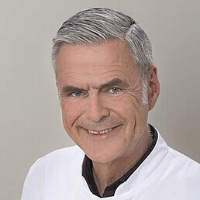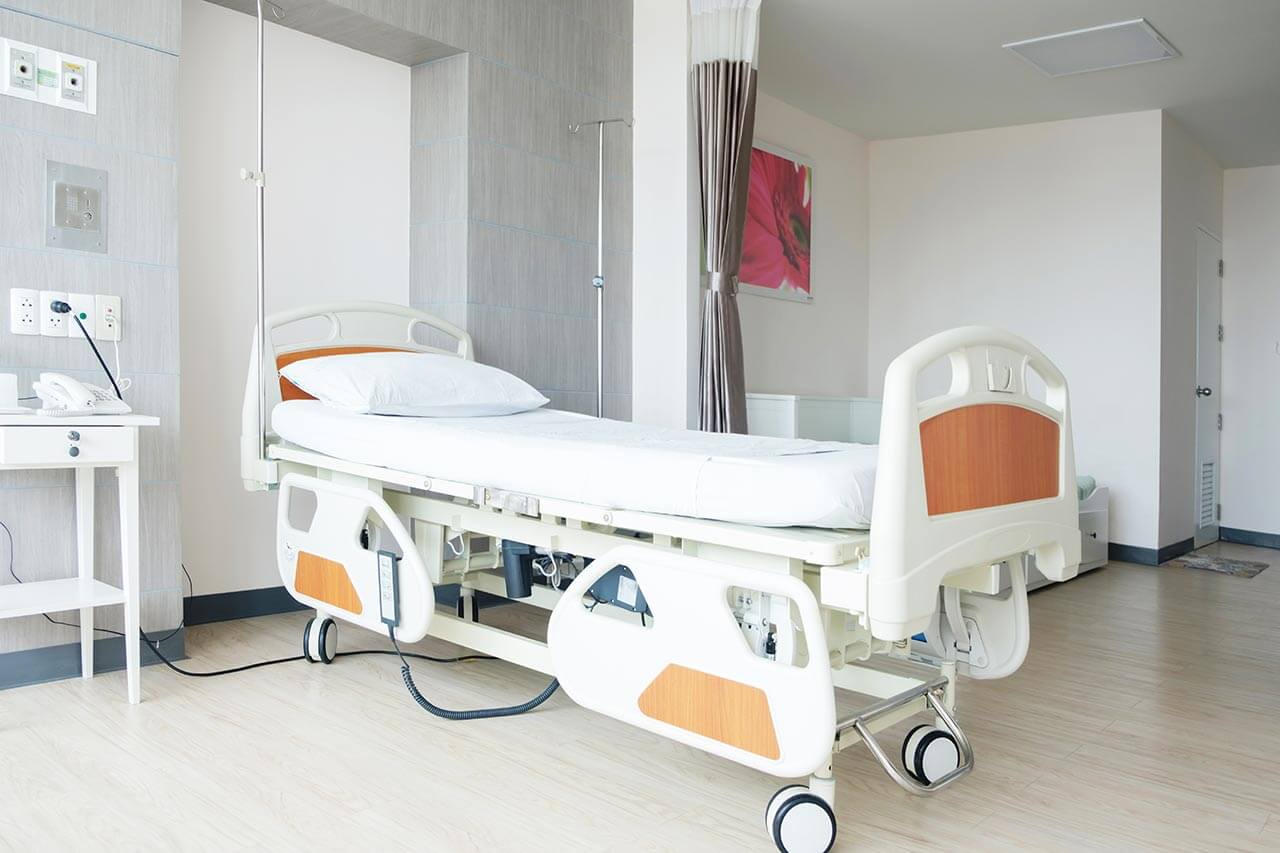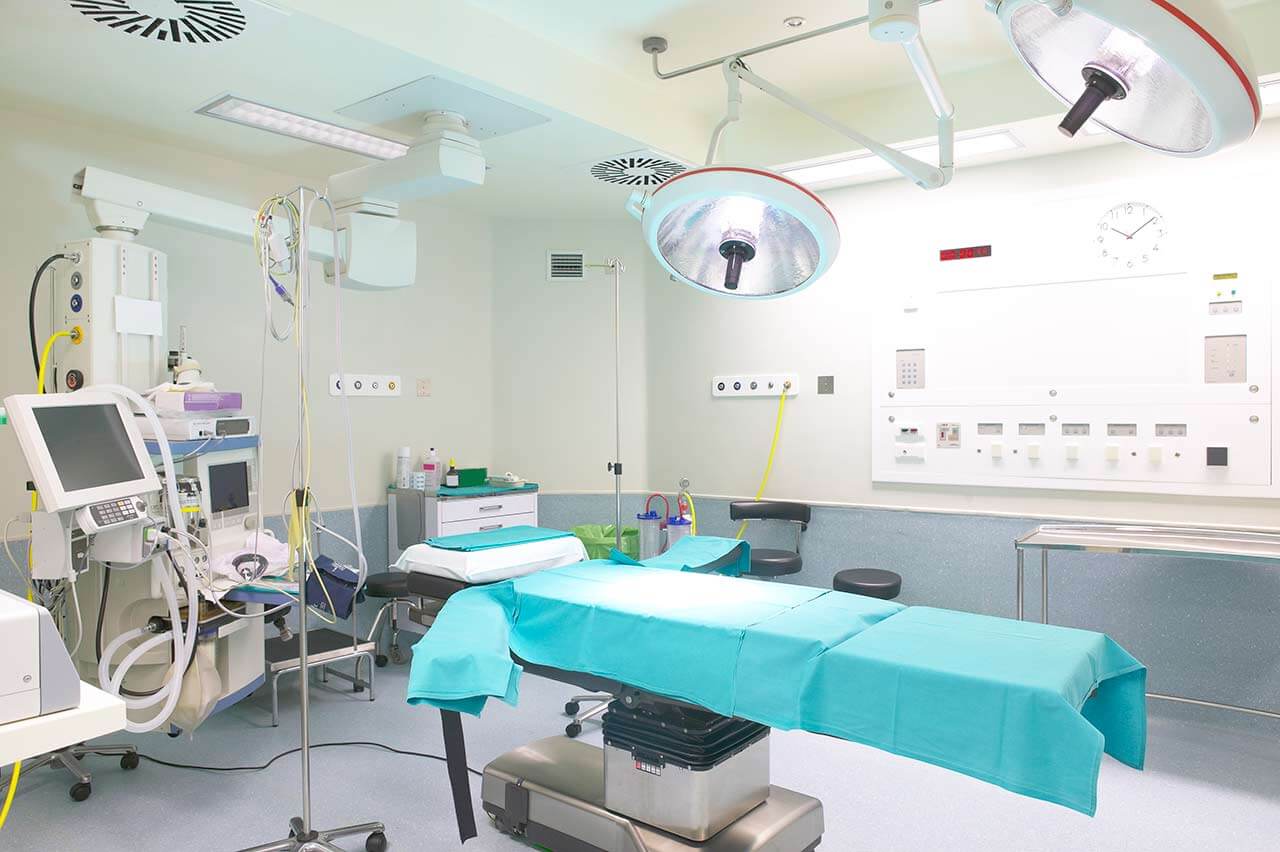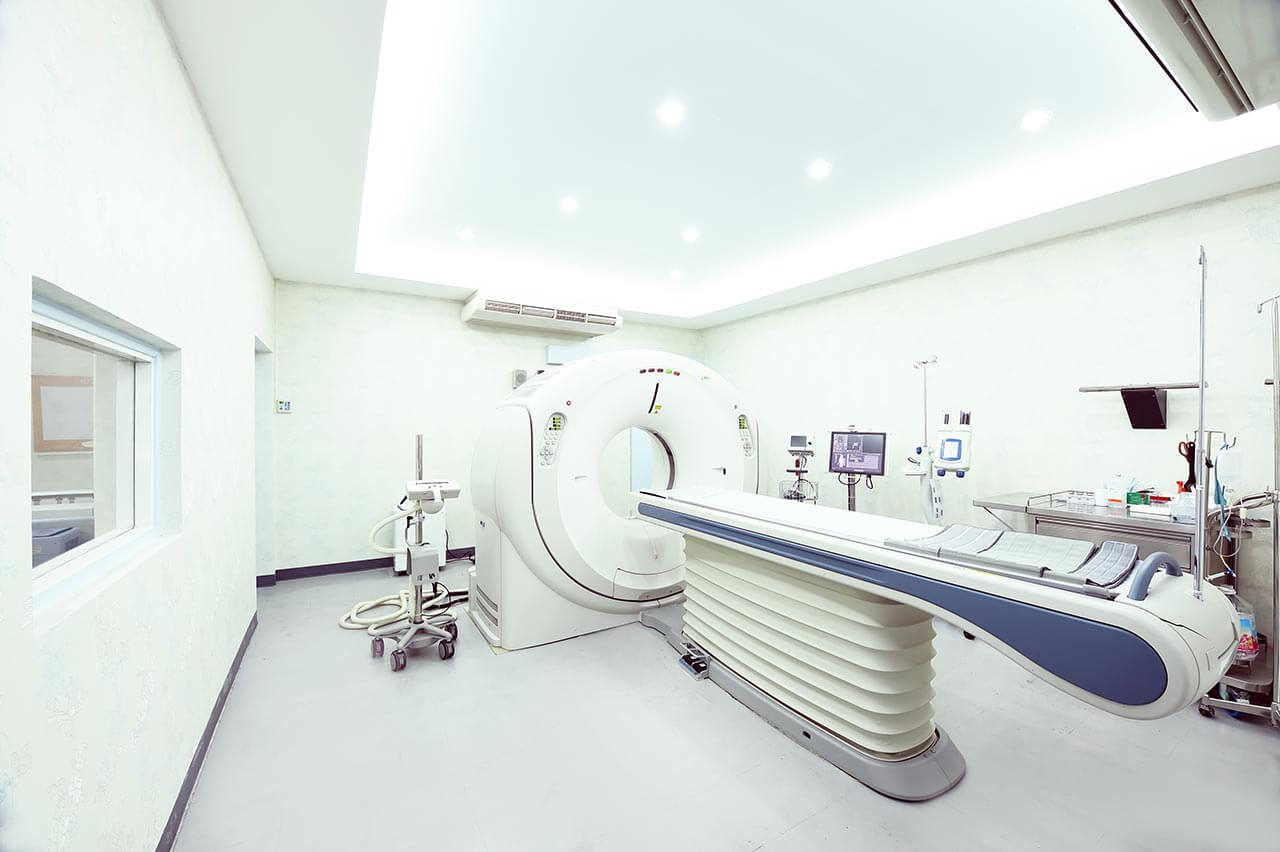
The program includes:
- Initial presentation in the clinic
- clinical history taking
- review of medical records
- physical examination
- laboratory tests:
- complete blood count
- biochemical blood test
- inflammation markers (CRP, ESR)
- blood coagulation analysis (aPTT, PT, INR)
- ultrasound of the abdomen
- gastroscopy
- nursing services
- consultation of related specialists
- treatment by chief physician and all leading experts
- explanation of individual treatment plan
Required documents
- Medical records
- Fibrogastroduodenoscopy (FGDS) (if available)
Service
You may also book:
 BookingHealth Price from:
BookingHealth Price from:
About the department
According to the reputable Focus magazine, the Department of Cardiology, Pulmonology, Nephrology, Angiology, Endocrinology, Diabetology, Gastroenterology and Hepatology at the St. Antonius Hospital Eschweiler ranks among the top German medical facilities specializing in the treatment of cardiovascular diseases!
The department provides the high-quality treatment of diseases of the heart, lungs and other thoracic organs, kidneys, vascular system, diabetes mellitus, endocrine diseases, gastrointestinal and liver diseases. The patients' health is in the good hands of the highly qualified doctors. The medical facility provides conservative treatment with the use of modern drugs. In the field of cardiology, the specialists also perform catheter-assisted interventions in a specially equipped Cardiac Catheterization Laboratory. In addition, the department has an Endoscopy Unit where gastroenterologists perform endoscopic procedures on the gastrointestinal organs for both diagnostic and therapeutic purposes. The department's medical team individually develops an optimal treatment regimen adapted to the particular clinical indications and needs of each patient. The department is headed by Prof. Dr. med. Uwe Janssens.
The department's team of cardiologists pays special attention to the diagnostics and treatment of coronary heart disease, acute and chronic heart failure, arterial hypertension, arrhythmias and heart valve diseases. The specialists of the Cardiac Catheterization Laboratory annually perform more than 3,200 diagnostic catheter-assisted diagnostic examinations, including about 1,100 stent implant procedures. The department's specialists have successful experience in the treatment of acute coronary syndrome. The patients suffering from arrhythmias can undergo radiofrequency catheter ablation – a modern treatment method for the correction of cardiac arrhythmias using special catheters and radiofrequency energy. This type of therapy allows for the complete destruction of the pathological focus that provokes a violation of the heart rhythm, which eliminates the need for taking antiarrhythmic drugs in the future. Catheter ablation is an excellent treatment option for atrial fibrillation, since the pathology in most cases is difficult to treat with drug therapy. When conducting electrophysiological examination and catheter ablation in patients with complex forms of heart arrhythmias, doctors additionally use innovative three-dimensional mapping systems.
The diseases of the lungs and other thoracic organs are treated by experienced pulmonologists of the department. The specialists mostly deal with the treatment of patients with bronchial asthma, chronic bronchitis and chronic obstructive pulmonary disease. Lung cancer is also successfully treated in collaboration with thoracic surgeons and oncologists. To assess the state of the respiratory system, pulmonologists use pulmonary function testing (whole body plethysmography, assessment of the diffusion capacity of the lungs, provocative tests, etc.), flexible and rigid bronchoscopy, blood gas test, ergospirometry, sleep monitoring. After studying the results of the diagnostic examination, doctors make an accurate diagnosis and prescribe an individually selected complex of drugs. If the diagnostics confirms lung cancer, oncologists, radiologists, thoracic surgeons and other specialized doctors may be involved in the therapeutic process. The experts work together to develop the optimal treatment regimen.
An equally important focus of the department's work is the treatment of kidney diseases, namely acute and chronic glomerulonephritis, nephrotic syndrome, kidney lesions due to diabetes mellitus, ANCA-associated kidney diseases, Goodpasture syndrome, acute and chronic interstitial nephritis and others. At the early stages of kidney disease, the department's doctors often manage to alleviate the symptoms and eliminate the pathology with the help of a properly selected complex of drugs. If drug treatment does not give the desired result, the specialists resort to renal replacement therapy (dialysis). The department performs more than 10,000 dialysis procedures every year. The Dialysis Unit has 18 specially equipped beds, including separate rooms for patients with hepatitis B and C, HIV and other infectious diseases. The last-line treatment is a kidney transplant, which is performed at the University Hospital RWTH Aachen.
The specialists in the field of angiology provide conservative treatment of diseases of the arteries, veins and lymphatic vessels. To treat varicose veins, angiologists mostly use pharmacotherapy and compression therapy. The interventional treatment of vascular pathologies is provided in cooperation with the Department of Vascular and Endovascular Surgery. An important area of clinical practice for angiologists is the treatment of chronic non-healing wounds, including diabetic foot syndrome.
The therapeutic options of the department are complemented by the treatment of diseases of the endocrine organs (thyroid gland, parathyroid glands, pituitary gland, adrenal glands), type 1 and type 2 diabetes mellitus, gestational diabetes mellitus, as well as complications of diabetes mellitus. In the case of dysfunction of the endocrine organs, the treatment consists in correcting hormone levels (drug treatment), while the main methods of treating diabetes mellitus are insulin therapy, taking blood glucose lowering drugs and diet therapy.
In addition, the department provides the full range of diagnostic and therapeutic services for the patients with diseases of the gastrointestinal tract, liver, gallbladder and pancreas. The main focus of doctors in this field is the conduction of endoscopic diagnostic studies and therapeutic procedures. The department's doctors mostly have to deal with the treatment of stomach ulcers, hepatitis B and C, liver cirrhosis, chronic inflammatory bowel disease, as well as with internal bleeding and malignant neoplasms of all organs of the gastrointestinal tract. The specialists of the medical facility perform more than 3,500 diagnostic and therapeutic endoscopic procedures every year, thanks to which they can be proud of a rich and successful experience in their area of expertise.
The department specializes in the treatment of the following diseases:
- Diseases of the cardiovascular system
- Coronary artery disease
- Acute and chronic heart failure
- Arterial hypertension
- Heart valve disease
- Arrhythmias
- Diseases of the lungs and other thoracic organs
- Chronic bronchitis and chronic obstructive pulmonary disease
- Bronchial asthma
- Pneumonia
- Pulmonary fibrosis
- Benign and malignant tumors of the lungs, pleura
- Pulmonary hypertension
- Tuberculosis
- Occupational lung diseases (for example, asbestosis, pneumoconiosis)
- Kidney diseases
- Acute and chronic glomerulonephritis
- Nephrotic syndrome
- Pathological lesions of the kidneys due to diabetes mellitus
- Pathological lesions of the kidneys due to myeloma
- ANCA-associated kidney diseases
- Goodpasture syndrome
- Acute and chronic interstitial nephritis
- Diseases of the arteries, veins and lymphatic vessels
- Atherosclerosis
- Deep vein thrombosis
- Varicose veins
- Obliterating atherosclerosis of the lower extremities
- Chronic non-healing wounds, including diabetic foot syndrome
- Diseases of the endocrine organs
- Thyroid diseases
- Parathyroid diseases
- Pituitary diseases
- Adrenal diseases, including Conn's syndrome and pheochromocytoma
- Pancreatic diseases
- Diabetes mellitus
- Type 1 and type 2 diabetes mellitus
- Gestational diabetes mellitus
- Complications of diabetes mellitus
- Diseases of the gastrointestinal tract and liver
- Stomach ulcer and inflammatory stomach diseases
- Internal bleeding in the gastrointestinal tract
- Irritable bowel syndrome and bowel polyps
- Liver cirrhosis
- Hepatitis
- Pancreatitis
- Heartburn and gastroesophageal reflux disease
- Esophageal varices
- Benign and malignant tumors of the gastrointestinal tract, liver
- Chronic inflammatory bowel disease (Crohn's disease and ulcerative colitis)
- Biliary disease
- Other diseases
The department's range of diagnostic and therapeutic services includes:
- Cardiology
- Diagnostics
- Echocardiography
- Coronary angiography
- Cardiac CT and MRI
- Electrophysiology studies
- 3D mapping
- Treatment
- Drug therapy
- Radiofrequency catheter ablation of cardiac arrhythmias
- Catheter-assisted interventional therapeutic procedures (for example, stenting)
- Diagnostics
- Pulmonology
- Diagnostics
- Pulmonary function testing (whole body plethysmography, assessment of the diffusion capacity of the lungs, provocative tests, etc.)
- Flexible and rigid bronchoscopy
- X-ray
- Echocardiography
- Allergic tests
- Blood gas test
- Ergospirometry
- Sleep monitoring
- Treatment
- Drug therapy
- Diagnostics
- Nephrology
- Diagnostics
- Laboratory and instrumental diagnostic tests
- Treatment
- Drug therapy
- Renal replacement therapy (hemodialysis, peritoneal dialysis, continuous veno-venous hemofiltration, etc.)
- Diagnostics
- Angiology
- Diagnostics
- Classic ultrasound examinations
- Doppler ultrasonography
- Capillary microscopy
- Treatment
- Drug therapy
- Compression therapy for varicose veins
- Conservative treatment of chronic non-healing wounds with modern dressings
- Interventional catheter-assisted procedures (in cooperation with the Department of Vascular and Endovascular Surgery)
- Diagnostics
- Endocrinology
- Diagnostics
- Hormonal tests
- Ultrasound examinations
- MRI
- CT
- Scintigraphy
- Treatment
- Drug therapy
- Diagnostics
- Diabetology
- Diagnostics
- Glucose, insulin, C-peptide, glycosylated hemoglobin, fructosamine tests
- Treatment
- Insulin therapy
- Tableted antihyperglycemic drugs
- Diet therapy
- Diagnostics
- Gastroenterology and hepatology
- Diagnostics
- Gastroscopy
- Colonoscopy
- Sonography, including with contrast enhancement
- Endoscopic retrograde cholangiopancreatography
- Endoscopic ultrasound scanning
- Ultrasound-guided percutaneous liver biopsy
- Specialized diagnostics of gastroesophageal reflux disease
- Treatment
- Drug therapy
- Interventional endoscopic procedures
- Removal of stomach, duodenal and colon polyps
- Endoscopic mucosal resection
- Stenting for stenoses and obstructions of the gastrointestinal tract
- Endoscopic variceal ligation
- Endoscopic retrograde cholangiopancreatography for removal of stones from the biliary tract, papillotomy, installation of drainage systems and stents
- Cholangioscopy for large gallstone fragmentation
- Endosonography-guided puncture and drainage
- Installation of special feeding tubes (PEG)
- Emergency endoscopic interventions for acute gastrointestinal bleeding
- Diagnostics
- Other medical services
Curriculum vitae
Higher Education and Professional Career
- 1979 - 1986 Study of Human Medicine at the Faculty of Medicine, University of Duesseldorf.
- Since 1986 Assistant Physician, Department of Internal Medicine, Lutheran Hospital Bethesda Monchengladbach.
- 1992 Assistant Physician in Intensive Care Unit (Cardiology), University Hospital RWTH Aachen.
- 1994 Board сertification in Internal Medicine.
- 1995 Senior Physician, and since 2001 – Managing Senior Physician, Intensive Care Unit (Cardiology) University Hospital RWTH Aachen.
- 1997 Specialization in Сardiology.
- 2000 Habilitation.
- 2003 - 2004 Chief Physician of the Department of Cardiology and Pulmonology, Caritas Hospital Bad Mergentheim.
- Since 2005 Chief Physician of the Department of Cardiology, Pulmonology, Nephrology, Angiology, Endocrinology, Diabetology, Gastroenterology and Hepatology at the St. Antonius Hospital Eschweiler.
Memberships in Professional Societies
- 2006 - 2008 President of the German Society for Medical Intensive Care Medicine and Emergency Medicine.
- Since 2014 Secretary General of the German Society for Medical Intensive Care Medicine and Emergency Medicine.
- Member of the European Society of Cardiology.
Photo of the doctor: (c) St.-Antonius-Hospital
About hospital
According to the prestigious Focus magazine, the St. Antonius Hospital Eschweiler ranks among the top medical facilities in North Rhine-Westphalia!
The hospital is a modern medical complex with 13 specialized departments. The hospital has more than 165 years of history, so it has long won an excellent reputation not only in Germany, but also in the European medical arena. In addition, the medical facility has the status of the Academic Hospital of the RWTH Aachen University, thanks to which it can offer patients the very latest and unique medical advances. The highly qualified medical staff of the hospital, consisting of more than 1,300 employees, is focused on high-quality medical services with due consideration of the personal needs and wishes of patients
The medical complex has 443 beds. More than 15,000 inpatients undergo diagnostics and treatment on an inpatient basis, while about 25,000 patients receive ambulatory medical care. The specialists of the hospital often provide diagnostic services and treatment to the patients from foreign countries.
The main areas of clinical practice of the medical facility include oncology, hematology, general and abdominal surgery, plastic surgery, hand surgery, vascular surgery, internal medicine, gynecology, urology and radiation oncology. Each area is represented by an experienced team of doctors and specially trained nursing staff, whose task is to provide the accurate diagnostics and the most effective treatment. The work of the medical staff is based on the use of modern technical resources, as well as classic and innovative treatment methods. The doctors from different medical specialties cooperate closely with each other, so the slightest details and characteristics of the patient's body are taken into account when planning and providing treatment. In addition, the medical staff is always open to personal communication with the patients, strives for their moral support on their way to recovery and surrounds them with care.
The outstanding achievements of the hospital and high treatment success rates are confirmed by the quality certificates of the German Cancer Society, the German Cardiac Society, the German Society of Vascular Surgery, the German Society of Hematology and Medical Oncology and the German Trauma Society. In addition, according to the famous Focus magazine, the hospital is recognized as one of the best medical centers in Germany specializing in the treatment of breast cancer, prostate cancer and cardiovascular diseases.
Photo: (с) depositphotos
Accommodation in hospital
Patients rooms
The patients of the St. Antonius Hospital Eschweiler live in cozy and light rooms. All the patient rooms are well equipped to make the patient feel as comfortable as possible throughout the entire period of hospital stay. The patient room includes an automatically adjustable bed, a bedside table, a wardrobe, a TV and a telephone. Each patient room has an ensuite bathroom with shower and toilet. Some patient rooms have specially designed bathrooms for disabled people. The patient rooms also have Wi-Fi.
If desired, the patient with his accompanying person can live in the enhanced comfort room. These patient rooms are additionally equipped with upholstered furniture, a mini fridge and a safe for storing valuables.
Meals and Menus
The patient and his accompanying person are offered tasty and healthy three meals a day: breakfast, lunch and dinner. Breakfast and dinner are served buffet style, while for lunch there is a choice of three set menus. If for some reason you do not eat all the foods, you will be offered an individual menu.
The hospital also has a cozy cafe with a large choice of salads, main courses, pizza, cakes and ice cream. Here you can enjoy aromatic coffee, delicious tea or soft drinks.
Further details
Standard rooms include:
Religion
The religious services are available upon request.
Accompanying person
During the inpatient program, the accompanying person can live with the patient in a patient room or a hotel of his choice. Our managers will help you choose the most suitable option.
Hotel
During the outpatient program, the patient can stay at the hotel of his choice. Our managers will help you choose the most suitable option.




